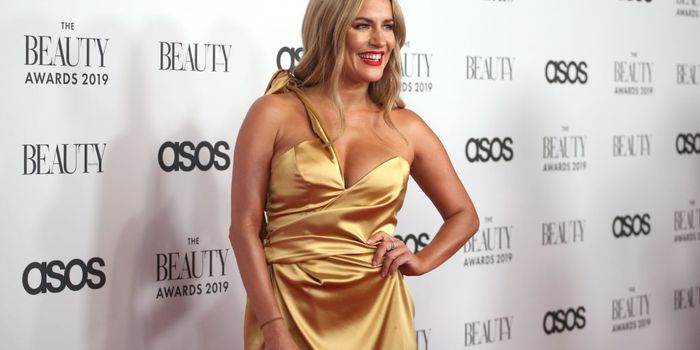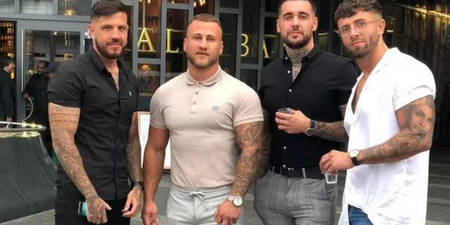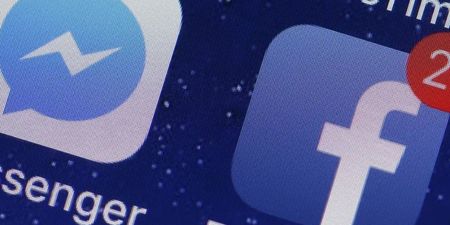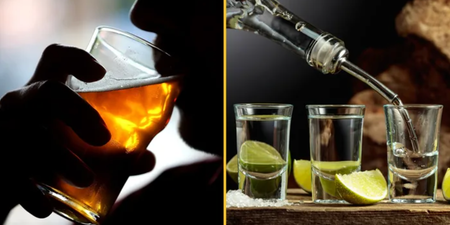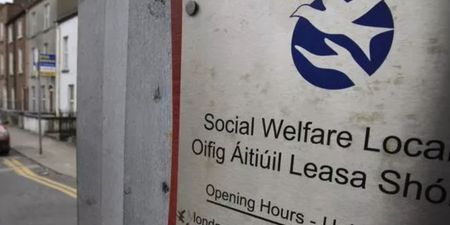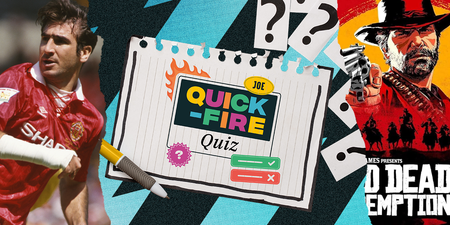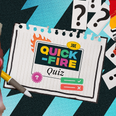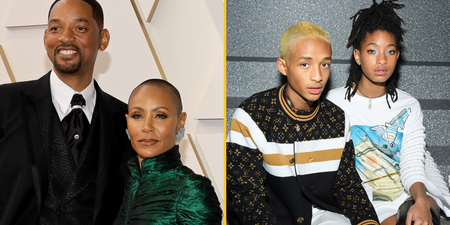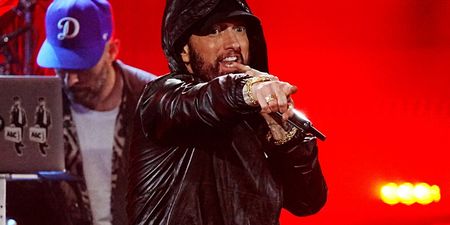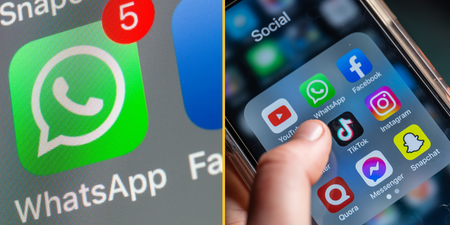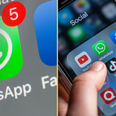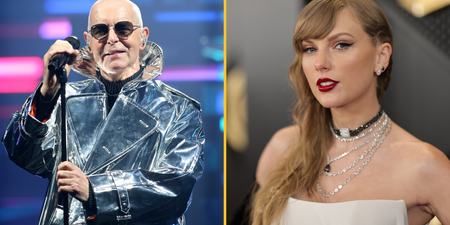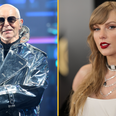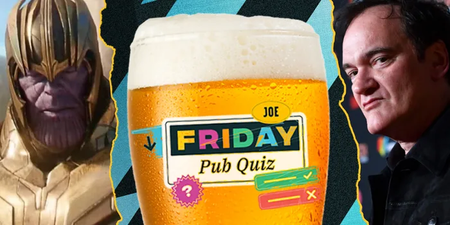“In a world where you can be anything, be kind.”
That’s the message that has cut through in the aftermath of Caroline Flack’s death by suicide. After being charged with domestic abuse, Flack had been designated as a public enemy, and reaped the kind of venom that the internet and tabloid newspapers reserve for their juiciest prey.
Many have pointed, correctly, to the role of tabloid newspapers in Flack’s final months – just as they were involved in the death of Princess Diana and the effective exile of Meghan Markle. But tabloid newspapers operate on the basis of supply and demand, and the reason they’re out for blood is because the public so openly bay for it.
Nowhere is that thirst for blood more palpable than on social media; Twitter and Facebook, especially.
After Flack’s death, these arenas of bloodsport were hosed down and redecorated. Briefly, any signs of bloodletting were plastered over by images bearing well-meaning-but-meaningless slogans written in typewriter font on eggshell backgrounds. In a world where you can be anything, be kind.
If anything, this naivety only enflames things. Anyone who spends their time on social media knows that these calls for kindness have come too late.
By this point, virtually everyone calling for peace has been part of an angry pile-on in the past, if not many, based on their arbitrary metric of who “deserves” it or not. There are too many recriminations to be made, too many scores to settle. How can it be possible to call for kindness after using the platform to judge, and criticise, and snipe, and insult, and grandstand, and mock?
And why should anyone who has been a victim of needless cruelty have to sit silently while someone who was needlessly cruel to them appeals to the world to find its conscience?
It’s the same energy as seeing your secondary school bullies sharing mental health awareness posts all of a sudden. Not only have these people found their conscience too late for some, but there has to be questions over whether they’ve found it at all – or if they’re just following where the crowd now leads, before it changes its mind once more and hunts somebody else for a pound of flesh.
Take Piers Morgan.
Morgan has long been known for anger towards women and mockery against the trans community. He loves Donald Trump – a man whose presidency was achieved on the back of hatred for Muslims and Mexicans. He is an embodiment of blind human hatred, whooshing around like a ghoulish cloud, searching for the next thing he can shame for views and clicks and cash. His Twitter display picture is his face on a penguin – a reference to a joke he made about “identifying as a penguin” in order to mock transgender people, whom statistics suggest are far more likely to attempt suicide than the average person.
It’s quite likely that Morgan sees himself as a victim of internet hate culture, since he’s so often subjected to the insults of people who he (intentionally) upsets.
This is your idea of kindness?
Practice what you preach, you foul-mouthed hypocrite. https://t.co/nJykSbQWpt— Piers Morgan (@piersmorgan) February 15, 2020
Is it unkind of me to point out that Piers Morgan makes millions by revelling in the distress that he causes to to thousands of vulnerable people? Is it right to demand that those defending themselves from persecution be kind to the ones who persecute them? Is it just to stand by when bad things happen, for fear of being unkind to those who do and say bad things?
There is no way any reasonable person could take Piers Morgan’s calls for civility at face value. And there are so many others like him. They may not have his millions of followers, but they share his appetites – even if they don’t know it.
We remember the glee with which people on social media rejoiced when it emerged last year that Love Island contestant Francesca Allen had called Caroline Flack a “dirty pedo” on social media (a reference to her relationship with Harry Styles). The scenes were those of jubilation. They had no choice but to stan.
There is no denying that some of Flack’s past actions made her a morally complicated person – but the idea of a morally complicated person is a tautology. There is nobody out there who thinks and says and does the right thing every time. People make mistakes. Some people make terrible mistakes. There are no paragons of virtue, just billions of people doing their best, and almost universally failing.
Compassion is not something to be rationed out like soup to those who live the way you want. It’s a foundational standpoint from which you build the rest of your beliefs, a gentle hand that tempers all of your worst impulses. It’s the difference between standing up for yourself and lashing out in an attempt to make somebody else feel bad.
None of this suggests behaving passively in the face of injustice. Kindness doesn’t have to mean silence, or weakness.
Kindness means knowing that if you’re witnessing 100 people call out somebody for the same thing, then there is no benefit to be gained by adding to the noise – even if you’ve got a really good joke to make, or a really incisive point that proves you’re the smartest person in the pile-on.
It means waiting days, or even weeks, or months, or years to see how somebody grows from their offence before you render your judgment unto them. Maybe it means suspending any judgment at all, and examining your own habits before you begin to dissect the world around you.
Asking yourself how much you really know about the situation you are remarking upon. Appreciating the hurt and fear and insecurity at the heart of all human fault. Acknowledging that it is possible to speak sense about those who have done wrong rather than wish them harm out of nothing more than a sense of revenge.
Compassion involves patience and humility and the acceptance that there are better things we can do than spew vitriol at those we don’t like or don’t understand.
Platforms like Twitter and Facebook actively prevent compassion from taking hold.
Social media is not built for compassionate behaviour. Even though the posts show up in sequential order, that doesn’t make them a conversation. They are screams into a snarling abyss, motivated by the validation that comes from Likes and Shares and Retweets and Followers.
Social media is designed to provoke people out of their best habits. If we all spent more time thinking about the things we say, we’d say a lot less, and that’s bad for business. And we have more to say when we’re angry. We have more to say when we argue. We have more to say when we hate. That’s the kind of behaviour social media encourages.
In a world where you can be anything, be kind. Sure. But good luck doing it on social media.
LISTEN: You Must Be Jokin’ with Aideen McQueen – Faith healers, Coolock craic and Gigging as Gaeilge
